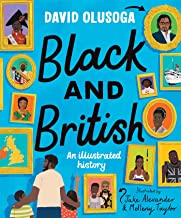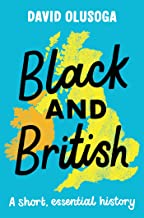World Book Day: Changing Perspectives - The Power of Reading
- lotenwriting
- Mar 2, 2023
- 6 min read
According to Gabriella Aplin and Huey Lewis & The News, it's the Power of Love that scares the darkness away, cleans your soul and causes one man to weep and another to sing. I would argue that whilst this may be true, books have exactly the same power.

Recently, I received an email which started me thinking and reflecting on the power of books to change people. I then read an ARC of a book called 'Found In A Bookshop' by Stephanie Butland and this reinforced my thinking. Although there are many different elements that make up the plot of the book, the one that stuck with me was the idea that the shop began running a book 'pharmacy'. In other words, their customers told them what was wrong with their lives, or the issues they were struggling with and the bookshop provided a list of books to read that they believed might help the person to cope better. They were realistic about books not solving anything on their own, but it was about providing a starting point. Another small incident which stuck with me was when a black character was reflecting on how well-meaning white friends relied on them to explain 'black issues' rather than finding out about it for themselves. She contacts the bookshop and when she goes to collect her books, the shop assistant makes an assumption about who she is based on her name and the colour of her skin. It's not intended to hurt, but as she herself later reflects, why did she assume that the black woman in front of her was the same black woman who had contacted her via email? It's a question the character struggles to answer and this causes her a degree of soul-searching. However, the email conversation also leads to the shop creating a section dedicated to finding out more about Black Lives Matter etc.

Reading this made me consider my own life. Back at the beginning of 2021, I wrote a blog article about how I'd struggled with 'Half Of A Yellow Sun' and the questions it had challenged me to ask myself about unconscious bias and my choice of reading material. The email I received was from a lady who had read my post and sent me a link to a website promoting black businesses, asking me to share the link. It prompted me to go back and re-read my post and I wondered about how well I'd been sticking to my lockdown resolution of ensuring that my author list was as diverse as possible. I had a look back through the books I'd read last year and was quite content that over the last two years I'd achieved my goal. However, I also considered the possibility of whether my reading was now more diverse because I was making a conscious choice to include at least one book a month which was by an author with a different background to my own, or whether my reading habits had genuinely changed. Again, not a comfortable question. My desire to do this doesn't come from a need to make a tokenistic gesture towards diversity, but from a genuine desire to broaden my thinking/understanding etc and to view the world from a different perspective than that of a white, English, middle-class, heterosexual woman. Nevertheless, I am conscious that unless the change becomes embedded, it risks remaining tokenistic in nature. Therefore, I had a look at last month's reading list. I knew I hadn't made a conscious choice to read particular books, other than ones I had to read for research purposes, or for the book group. All the other books I'd read were either ones from my reading challenge (just a list of books I'd added to the TBR pile in 2020 and 2021) or ones I'd spontaneously picked up. I hadn't looked at the authors of any of them prior to reading them. One was by a black author, one by an author from Belgium (in translation obviously). I went back to January. There were two black authors and a Russian one (again in translation). There had been no conscious choice made, it was just a coincidence and I felt satisfied that I was still making progress in diversifying my reading. It's still a work in progress, but I'm headed in the right direction.
The other thing I have noticed since beginning this journey is that my reading choices are slowly making more socially conscious. I mean, I wasn't completely unconscious to begin with, but I know that the way I view things has definitely changed in the last two years. Having read books which view the world in a different way to me, I'm now much more aware of things like unconscious bias and things which have racist/transphobic undertones etc, whereas in the past I might have been less aware of the underlying message behind seemingly innocuous comments.
I've also noticed that the power of those books has spread beyond just me. A former colleague now runs her own company and goes into schools to talk about racism and how to tackle it. A few months ago, on her company Facebook page, she recommended a book called 'Black and British' by David Olusoga. I read it and got the children's version to read with my 7yo. I thought I was pretty knowledgeable about English history, but it was hugely eye-opening to see quite how much had been left out of my history lessons. It was a fascinating read and I would highly recommend it to anyone. In fact, that's exactly what I did. My husband's school were trying to tackle racism and he'd been talking to me about some of the strategies they were putting in place and the companies they were bringing in to do workshops etc with the pupils. As they pride themselves on being a reading school, I suggested that he might want to consider making 'Black and British' the book for the next round of reading. He did and they are ordering copies in. At the same time, knowing that his Head often gives the SLT books to read on topics they want to focus on, I recommended 'Why I'm No Longer Talking To White People About Race' by Reni Eddo-Lodge, which I'd listened to and found compelling. A few weeks later, he came home with a copy.

However, it isn't just a social conscience that books have the power to change. It wasn't something I'd thought about for a while, but when I was collecting my thoughts for this blog post, I remembered talking to someone recently about 'The Reading Cure: How Books Restored My Appetite' by Laura Freeman. It's a memoir about how the author read herself back into eating and as as a self-confessed bibliophile and someone who has struggled with anorexia in the past, I found it thrilling that it was reading which had helped her to battle the disease. Again, I was struck by how influential reading can be (and not just in the irritating, 'I'm going to copy the most annoying aspect of this character's behaviour way' that my youngest son often demonstrates). Books have influenced him to try different foods, to seek out books/authors that have been mentioned in other books, to write his own stories, to apply what he's learnt in them to other aspects of life, make connections between behaviour he reads about and real life etc etc. The list of things he has learnt from books is almost endless.

Nevertheless, as much as I love reading and am thrilled by the fact that he gets so into the books he's reading, it does mean that World Book Day is often a stressful experience for me. I usually spend the evening before frantically assembling a costume, because no matter how organised I try to be, there's inevitably some last minute thing I've forgotten that he absolutely MUST have for his costume. This year however, I am feeling remarkably chilled as the day dawns. He decided month ago that he wanted to go as Sherlock Holmes. I bought him the relevant accessories when he initially wanted to dress up as the famous detective and he's been wearing them around the house for months!

Therefore, his costume is ready and he's now read a handful of the Sherlock Holmes stories, albeit in the form of children's versions and graphic novels. He's practised behaving like a detective and even roped his brother in to make up stories about mysteries he's investigated (my personal favourite of these was the mystery of the ginormous slice of bacon...) so he's all set to go. The only thing he's failed to do is to persuade his dad to shave off his beard but leave the moustache, so that he looks like Doctor Watson!
Some Useful Resources
If you want to diversify your own reading, but aren't sure how to go about it, here's a handy step by step guide: https://www.epicreads.com/blog/diversify-your-reading/
If you're still not sure why it's important to have a diverse reading list, watch the video below.


















Comments